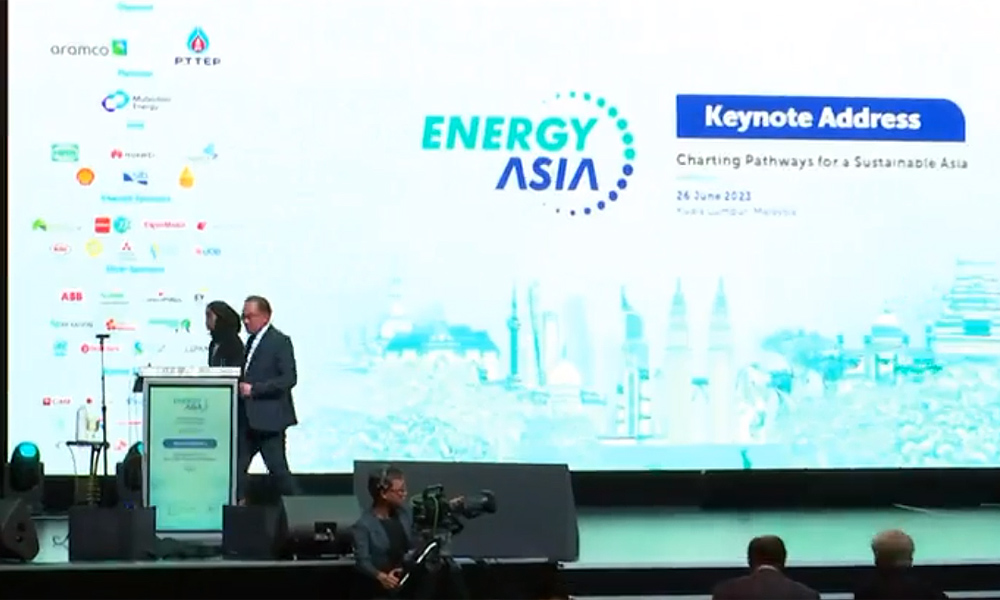Malaysia is determined to be well-positioned to play its part in reducing emissions while ensuring that it is ready for the growth of the low-carbon economy, Prime Minister Anwar Ibrahim said today.
For that, he said, Malaysia has revised its Nationally Determined Contribution (NDC) to reduce the intensity of greenhouse gas emissions by 45 percent by 2030 compared to 2005 levels as part of the nation’s responsibilities toward overall global climate targets.
“The efforts towards achieving our NDCs have been incorporated into the 12th Malaysia Plan and the National Energy Policy 2022 – 2040 (NEP 2040). This policy document strategically charts the way forward and outlines key priorities for the energy sector in the coming years.
“It positions the energy sector as a key catalyst for socio-economic development, and its progressive low carbon nation aspiration will ensure that the Malaysian economy is able to capitalise on opportunities arising from the energy transition to remain resilient and sustainable,” he said in his keynote address at Energy Asia 2023 in Kuala Lumpur today.
Anwar said to implement this policy successfully to reap the full benefits of the significant socio-economic advances for the nation, the government is further developing several strategic roadmaps.

“Of paramount importance is the National Energy Transition Roadmap which will outline the overarching strategy and high-impact initiatives to expedite the energy transition efforts.
“This roadmap will be complemented by the Hydrogen Economy and Technology Roadmap, which will pave the way for the achievement of environmentally sustainable, long-term energy security in Malaysia, driven by technological innovation,” he added.
The prime minister said these two roadmaps are targeted to be launched by the second half of this year.
Meanwhile, Malaysia continues to see natural gas as playing an important role in the energy mix and as one of the cleanest burning hydrocarbons to transition towards a lower carbon economy.
At the same time, the government, recognising the importance of managing methane emissions as a highly potent greenhouse gas, has committed to join the global methane pledge to cut emissions by 30 percent by 2030 compared to 2020 levels.
“Our existing mature industries also offer some natural adjacencies to the renewables and the lower carbon economy. As a traditional producer of natural gas and liquefied natural gas, hydrogen represents a natural next step in the value chain and offers a potential avenue for further economic growth,” he added.
- Bernama



No comments:
Post a Comment
Note: Only a member of this blog may post a comment.